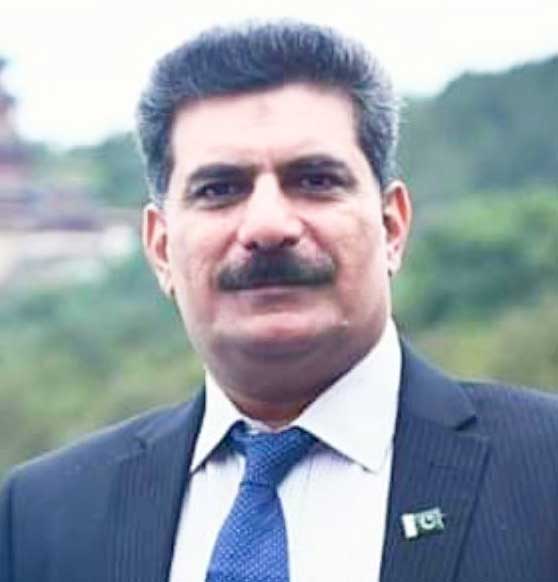Article 25-A, on the ‘Right to Education,’ was introduced to the country’s basic rights portion of the Constitution in April 2010 by the 18th Amendment. We still have roughly 20 million five- to 16-year-olds out of school over 12 years later. Our assessments of child learning also reveal that, with the exception of a tiny number of children who attend elite public and private schools, the majority of Pakistani schoolchildren receive a poor quality education. Why does this situation continue to exist?
We’ve tried just about every ‘reform’ in the education sector, including free books, no tuition, stipends, meal programmes, afternoon schools, monitoring systems, performance incentives, merit-based teacher recruitment, school councils, management committees, school-based recruitment, and non-salary budgets. However, the needle hasn’t moved much in terms of reaching aspirations for universal education at a minimal level. In truth, we have lost ground on matters relating to educational quality in several regions and for some years.
Our public school system is, without a doubt, underfunded. Spending less than 2% of GDP on education would not ensure that every child receives a good education. However, it is also true that the system a) does not spend money efficiently and b) has a limited ability to absorb additional funds. As a result of the increased demand for resources, we must also make the system more efficient; otherwise, even doubling the budget will not yield benefits.
So, what exactly is it? Is it true that the Pakistani people place little value on education? They don’t wish to provide their children with a good education? This does not appear to be true. People are casting their ballots with their feet. Those who can afford it send their children to private schools in the hopes of receiving a good education, even if it means cutting back on other necessities. The problem isn’t one of supply. The wider solution appears to be found in education’s political economics. Why should political parties, legislators, and bureaucrats be concerned about ensuring that every child in the country receives a good education? What is their motivation for doing so?
Politicians find it more difficult to discuss how they have enhanced educational quality.
Politicians respond to electoral pressures by focusing on what will get them elected, strengthen their coalition, and provide them more visibility and credit. Given the country’s electoral system, the aggregate of voter choice in terms of fairness is a problem in and of itself. Even if we ignore that issue, the provision of high-quality education is not a major topic in our elections. Local services (roads, water, sewerage, gas, and electricity), as well as job access, are typically prioritized. Constituents may be concerned about jobs as teachers or school personnel, but they are not concerned about all children having access to a high-quality education. Perhaps the electorate has given up hope in that state can provide quality education.
It’s also true that ‘excellent’ characteristics are always more difficult to spot. The aspects of access and infrastructure are easy to see and verify, and they are also more accountable. Even if there is pressure to provide education, the statistic is more about creating new schools, updating old ones, and/or providing facilities such as boundary walls, classrooms, restrooms, and electricity and water connections.
Politicians might discuss how they gained a new school for their community or had a primary school upgraded to a middle or high school, as well as infrastructure and teachers assigned to the school. Politicians, on the other hand, find it more difficult to discuss how they have enhanced the quality of education in a school or in schools in their area.
Changes in quality take time to implement and to realise their influence. If the quality of education improves, it will show up in the outcomes of children’s public examinations, in the colleges to which they go after graduation, and in the employment and wages they receive. However, it will take time for this to become apparent. Electoral cycles guide the activities of politicians. They are concerned about the upcoming election, which is only five years away. The electoral cycle and the pursuit of high-quality education are not in sync.
Politicians serve as ‘principals’ for bureaucrats who serve as ‘agents’ (using the economic concept of a ‘principal agent’). Why would the agent do it if the principal isn’t interested in providing great education? It would be difficult to build an effective delivery system even if principals were interested, but when it is not even a priority for the principal, why would the agent invest any time, beyond the bare minimum required to maintain the status quo, to accomplish anything? This is how education has typically been handled by provincial administrations. Despite the fact that education departments are often the largest in terms of personnel numbers and compensation costs, bureaucrats do not prefer to work in them.
Even in Pakistan, there is evidence that shifting political priorities has a significant impact on the system. We saw tremendous performance improvement in Punjab from 2012 to 2018, when the chief minister and chief secretary held deputy commissioners of districts accountable in the pursuit of educational targets. The goals were still mostly about access and infrastructure rather than educational quality, but there is some evidence.
Pakistan’s polity holds politicians to a low level of political accountability. Given this fact, as well as the difficulties in making “access to quality education” a visible priority for politicians, it’s no surprise that 20 million children are out of school and education quality is inadequate. Why should bureaucrats be concerned about providing decent education if politicians aren’t? This equilibrium, however, can be disrupted. Major changes in how politicians are held accountable would-be part of the transition. This is going to be a challenge. However, if we do not hold politicians accountable, we will not be able to provide all students with a high-quality education.
Sign in
Welcome! Log into your account
Forgot your password? Get help
Password recovery
Recover your password
A password will be e-mailed to you.






